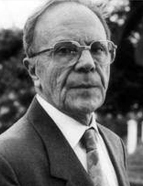

A significant part of Serrão’s reflection on history is centred around the relationship between the historian's craft and the exercise of citizenship. To what extent are these two activities reconcilable? In other words, to what extent can they be untangled? His interest in 19th century Portugal was grounded on the need «to trace the roots of what I felt, at several levels, was the dead end in which we had found ourselves» (Jornal de Letras [Journal of Letters], 31-01-1989, p. 18) or, with reference to the Estado Novo, «the roots of the phenomenon to which the Portuguese people had, after all, fallen victim » (Os anos 40 na arte portuguesa, [ The 40s in Portuguese Art], vol. 6, 15). Yet this did not mean that he had succumbed to militant historicism for, as noted above, the search for objectivity and a “serenely scientific approach” were values he defended in his works.
The interconnection between historiography and citizenship may be found, for example, in his studies on emigration, an endemic problem of the Portuguese society that was incapable of “promoting its people”; or even as editor of the Coleção Horizonte [Horizon Collection] – a publishing house for works on history, philosophy, geography and sociology and where most of his works were published. Serrão's aim was to disseminate his major works in this collection to a larger audience, at an affordable price, thereby contributing to the “development of the country by equipping it with cultural and mental resources»
In short, in his own words, «ideology is the tacit or effective negation of a scientific approach and methodology […] history, as a science, negates that which is contained by ideology; the historian, however, coexists with the citizen – and how can the latter, as such, escape influences and options of an ideological nature? » (Emigração portuguesa, 19). An aporia, as stated by Serrão, which is nevertheless a challenge to critical thinking and problematisation that the historian, condemned to citizenship, cannot avoid.
By way of conclusion, the prominent role played by Joel Serrão in the Portuguese culture of the second half of the 20th century may be highlighted in his opening of new approaches both in history and in literary studies. Pioneer in the study of a variety of themes and writers of contemporary history, his work was marked more by the opening of new paths than by a historical overview; this may be why his work, to some extent, has fallen into oblivion, partly also due to the maelstrom of historical studies in recent decades.
